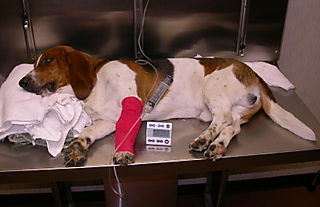 |
| We want to see our pets feel better but call a vet before giving OTC meds (image source) |
No one likes to see their pets in pain. We would do just
about anything to make them feel better. One important thing to remember before
reaching into the medicine cabinet is to check with your veterinarian before
giving ANY over the counter medications. This is especially true for pain
relievers. Although they can be relatively safe when used as directed in people,
non-steroidal anti-inflammatory medication (such as Advil and Aleve) can have
devastating effects on our pets.
 |
| Our pets metabolize medications different from us so always call your vet first (image source) |
One reason these drugs can cause such damage is that they
are designed to be fast acting in humans. This means once ingested they will be
absorbed fairly quickly. They will then start to enter circulation and can
cause damage to the kidney and liver along the way. Once ingested, there can be
a range of symptoms that develop. The most common signs associated with lower
doses include gastrointestinal upset such as vomiting, diarrhea or decreased
appetite. As the dose gets higher or treatment is delayed ulcers can begin to
develop throughout the stomach and intestines. This can be very painful and
also in severe cases can lead to blood loose in the gut and even anemia. At
higher doses or if treatment is delayed even longer we can start to see acute
renal failure. The kidneys can being to shut down within 12 hours of ingestion
of very high doses or out to 5 days with lower doses. This is another good
reason to contact your veterinarian if you believe your pet may have gotten
into the medication. Or to be up front with your veterinarian if you administered
the medication. This way appropriate treatment can be initiated without delay. Remember
that veterinarian pain medications are made to be very appealing so pets can
over dose on these medications even though they are designed and safe for pets.
Keep all medications in a secure and safe location away from pets and children.
 |
| Treatment will include hospitalization with fluid therapy (Image Source) |
Treatment depends on when ingestion was suspected to have
happened. If ingestion occurred within the last hour and there are no current symptoms,
veterinarians may elect to induce vomiting to remove any of the tablets that
are undigested. If it has been longer or unknown they may elect to draw
baseline blood work to evaluate the red blood cells and the kidney and liver
values. Many times even if the kidney values are not elevated it may be
recommended to begin supportive care. This include hospitalization, intravenous
fluids and medications that will help coat and protect the gastrointestinal
system.
Non-steroidal anti-inflammatory (NSAID) toxicity
is a very serious and very common occurrence in our pets. The outcome many
times depends on rapid treatment. As treatment is delayed the prognosis tends
to become worse. Again ALWAYS speak with your current veterinarian prior to
giving ANY over the counter medications.

No comments:
Post a Comment